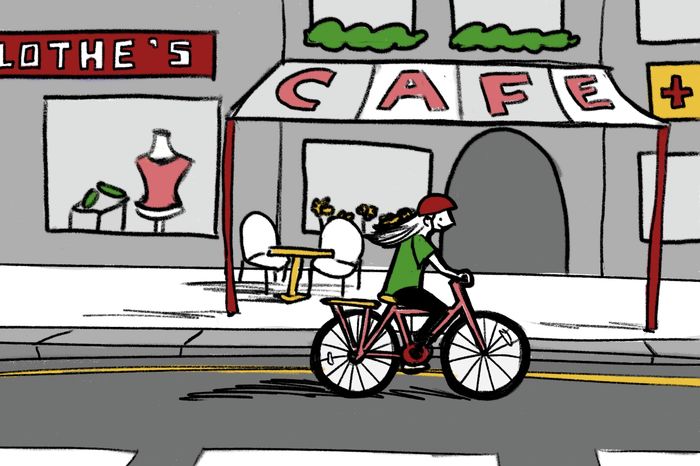How the dad bod won politics
Sam Hudson argues that voters now seek stability in something they trust, the dad bod

By the end of 2024, over 2 billion people will have passed through polling booths in over 60 countries. Much has already been made about the likely success of the right and far-right in these elections. Such parties have already surged in the latest set of European elections. And after a disastrous week for Joe Biden, on TV and in the supreme court, Trump is now odds on favourite to win in November.
The foam and froth of this far-right tide has thankfully not washed over everywhere, however. Britain is an outlier with all polls suggesting that Labour led by centre-left Keir Starmer will sweep to power in a landslide. In a greater surprise, Narendra Modi was denied a populist whitewash in India’s spring elections, with Rahul Gandhi’s big tent alliance outperforming almost all expectations.
Politically-speaking, there is nothing which unites Trump, Starmer, and Ghandi. However, they do all share one particular feature: the dad bod. Stocky, average (ish) height, and sometimes pudgy – it is the physique with the most stable centre of gravity.
Over the past few years, some commentators noticed a downsizing amongst world leaders. Olaf Scholz in Germany, Rishi Sunak in Britain and even Joe Biden are all significantly smaller in stature than their electoral challengers.
“Voters do not so much want strongmen as they want stocky men”
It appears, however, that this reign of anaemic, short kings will soon be over. In Britain, voters have had enough of what the Economist has labelled “UwU Conservatism” and its embodiment in Rishi Sunak. In America, widespread concerns about Biden’s age are not helped by his skinny (read frail) stature. And in India, Gandhi too cuts a more robust figure against an ageing, diminutive Modi.
Voters do not so much want strongmen as they want stocky men. Quite often, these two features have collided in the same figure – Trump and Hungary’s Viktor Orban being the prime examples. Yet, as both Starmer and Ghandi show, these two features are easily separable.
In the UK, the Dad Bod straddles the country’s political psyche like the colossus it is. Not only does Starmer seem set to win Labour’s largest-ever victory, but Ed Davey is likely to resurrect the Liberal Democrats as Westminster’s third largest party. Taller and yet… more sturdily built than Starmer, Davey is set to win 72 seats according to the final YouGov MRP – a sextupling of the Lib Dem’s 2019 results. This success may have more to do with Tory calamity and the endearing, stunt-filled election campaign run by the Lib Dems than it does with the psycho-politio-sexual inclinations of the electorate.
Yet the trend is clear: In these uncertain, turbulent times, voters are looking for stability – something more to grasp on to. It seems that this sentiment should be taken very literally.
Politics in the 2020s has become yet more cynical and Hobbesian than it was in the later 2010s. Boris Johnson may have been the Leviathan that promised to save us from chaos and division of the Brexit, yet he brought only more chaos and misrule.
“In these uncertain, turbulent times, voters are looking for stability”
Though at this point a cliche, it is true that voters are losing faith in the “normal” politics of the centre. Some have sought sanctuary in the scapegoating and undeliverable promises of the far-right.
Thankfully, a majority of those able to vote will never be sufficiently engaged to find themselves (at least intentionally) on the political extremes. These are the vibe voters. They watch the 10 o’clock news from time to time. Maybe buy the odd newspaper and… skim the front page before putting it in the recycling. Opinions and preferences are formed around first-impressions because time is such a scarce resource.
Sunak himself initially benefited from this sort of politics. Presentable, reasonably well-spoken, and the “brains” behind the popular yet disastrously conceived “Eat Out to Help Out” scheme, he became the youthful face of our ephemeral post-Pandemic optimism. With the Russian War in Ukraine and high inflation, that dawn never came. Now he is a victim of this same phenomenon that once made him one of the more popular Tory MPs. He seems wet, weak, and meek compared to Starmer. With hindsight, Tory small statism spearheaded by an even smaller man was never going to be a winning combination when so many yearn for a more paternalistic, stabilising politics.
Earlier this year, Blair grandee and Labour peer, Peter Mandelson, suggested that Starmer could improve his advantage over the Conservatives by losing weight. It may be wishful thinking on my part as someone else who has accumulated a bit of Kummerspeck recently, but I think this advice was ill-founded. After all, Starmer looks set to enter Downing Street with one of the biggest majorities ever won by a Labour government.
The Dad Bod and the stability it promises has won over the political mood, and parties, especially those on the Left, should take notice. The Democrats should take the most heed. With Biden on the ropes, who better for the Dems to turn to than the rotund, indomitable Governor of Illinois, JB Pritzker?
The latter half of the 2020s will be a time of big government led by big (if not quite great) men. If other parties can capture this mood, as Labour has, they stand to win big. If not, they face an embarrassing stint in the wilderness along with the Tories.
 News / Colleges charge different rents for the same Castle Street accommodation2 March 2026
News / Colleges charge different rents for the same Castle Street accommodation2 March 2026 News / News in Brief: waterworks, wine woes, and workplace wins 1 March 2026
News / News in Brief: waterworks, wine woes, and workplace wins 1 March 2026 News / Climate activists protest for ‘ethical careers policy’1 March 2026
News / Climate activists protest for ‘ethical careers policy’1 March 2026 News / Angela Merkel among Cambridge honorary degree nominees27 February 2026
News / Angela Merkel among Cambridge honorary degree nominees27 February 2026 News / Private school teacher who lied about Cambridge degree barred from teaching27 February 2026
News / Private school teacher who lied about Cambridge degree barred from teaching27 February 2026










